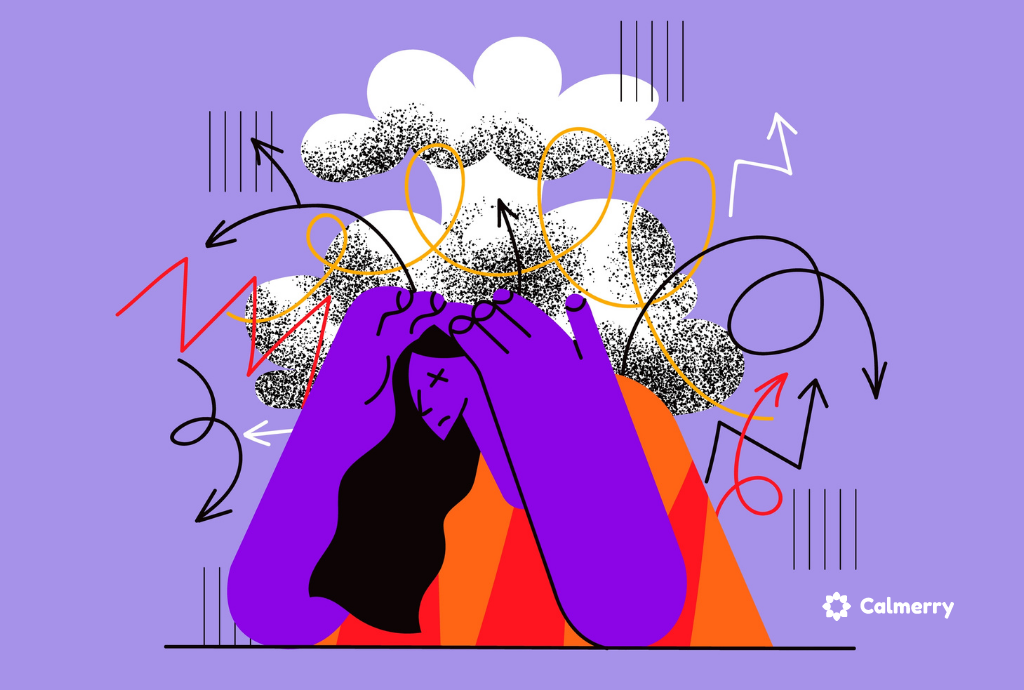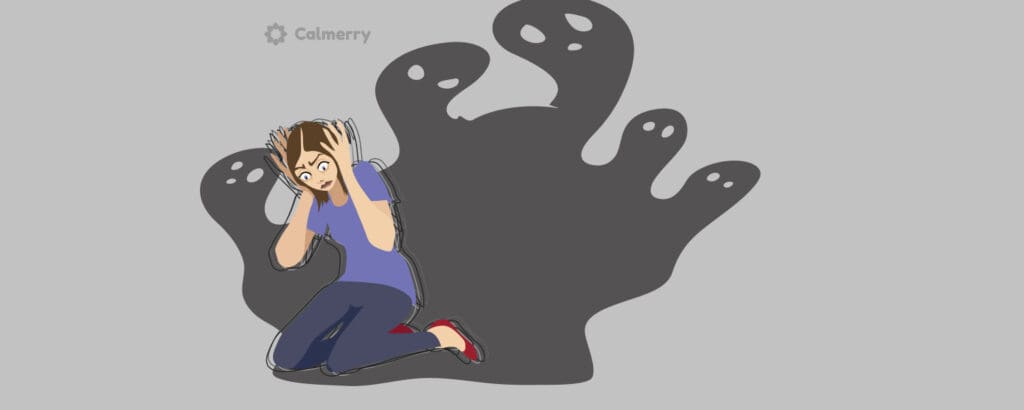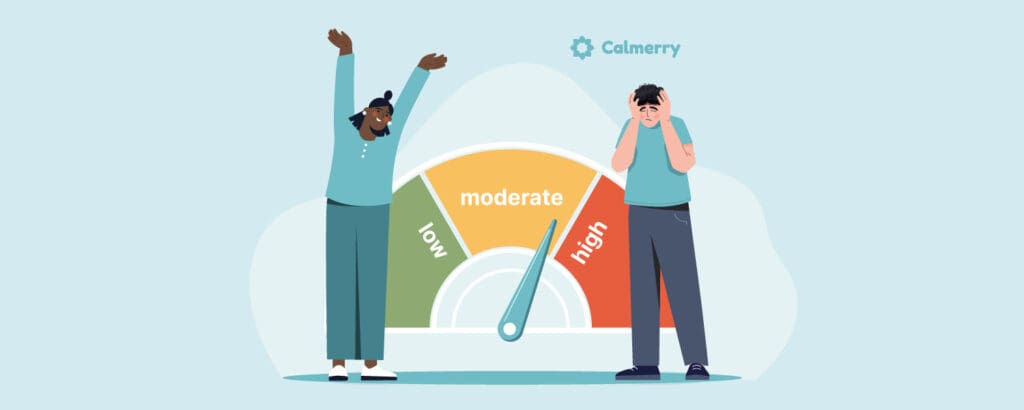The Physical and Emotional Effects of Stress on the Body

In this article
We all go through periods of stress. Pressure at work, moving house, relationship breakdowns, and other life events can quickly leave us feeling overwhelmed or fraught.
Although stress is a natural part of life, long-term stress, when left unmanaged, can contribute to the development of anxiety disorders, which can be detrimental to your physical and emotional health. That’s why it’s important to understand how stress affects the body and what you can do to manage it.
Stress and Your Health
Stress can occur as a result of isolated situations such as being late due to a traffic jam or as part of a much larger life event like being made redundant or going through a divorce.
Regardless of the cause, stress puts the body into a state that is similar to the fight or flight response associated with managing a potentially harmful situation. You become more alert, putting you in a better position to manage the cause of stress.
In small, short-term doses, stress is helpful. The release of stress hormones causes new nerve cell generation in the brain, increasing your focus and cognitive function. Stress can also boost immune responses to prevent you from becoming unwell. This useful function means that you could be less susceptible to coughs or colds prior to an exam or big event.
Conversely, coping with chronic or long-term stress can sadly leave your body in an unhealthy state.
The Biology of Stress
The stress response within the body occurs between the brain and the adrenal glands. Upon exposure to a stressful situation, there is arousal and activation of the pathways that connect the hypothalamus and pituitary within the brain, with the adrenal glands located just above the kidneys.
Short term, this activation leads to necessary adaptiveness within the body. The response occurs to mobilize energy and increase your levels of alertness. When the stress subsides, stimulation of the pathway stops.
However, if the pathways are chronically stimulated, the body becomes hyper-aroused. Worryingly, this can lead to wear and tear of our body organs, and unlike acute stress, it can even suppress the function of the immune system. In short, the body does not cope well with extended periods of stress.
What Are the Emotional and Physical Effects of Stress?
Stress can affect everyone differently. While some people experience stress as a psychological phenomenon, others may experience it with somatic symptoms. Somatic symptoms are felt physically and may include nausea or pain. Many people will notice that they encounter a combination of both physical and psychological symptoms.
Body responses to stress
At the initial onset of a stressful situation, you may experience the fight or flight response. This could include:
- Feeling your heart racing
- Breathing more quickly
- Tensing of your muscles.
This response prepares you to act in a way that will protect you from harm. In evolutionary terms, this would have allowed you to escape from a perceived threat such as a fire.
As the initial threat subsides, you are left with the longer-term effects of managing stress. The physiological effects of stress include:
- Headaches
- Digestive upsets, including diarrhea, constipation, or nausea
- Aches and pains, including chest pain
- Difficulty sleeping (insomnia)
- Low energy
- Nervousness or shaking
- Dry mouth
- Grinding the teeth or clenching the jaw.
Emotional responses to stress
The emotional and cognitive effects of stress can sometimes be overlooked or wrongly dismissed as anxiety. However, the emotional response to stress can be just as draining as the physical effects. Responses may include:
- Being tearful
- Feeling agitated, moody, or frustrated
- Feeling overwhelmed or nervous
- Low self-esteem
- Feeling worthless
- Depression
- Having difficulty concentrating
- Being forgetful
- Worrying constantly
- Being pessimistic.
The effects of long-term stress
The long-term effects of stress have been studied extensively. Chronic stimulation of the adrenal glands increases the concentration of catecholamines within the body, including epinephrine, dopamine, and norepinephrine.
Pain
Although these hormones are needed for the fight or flight response, they often cause tension-related symptoms such as headaches or aching joints.
Wear and tear
Catecholamines also increase the wear and tear of arteries, including those that supply the heart. This increases the stress on the blood vessels and causes them to narrow, which can lead to chest pain and heart disease. Furthermore, high levels of catecholamines can increase the concentration of lipids in the blood as well as increase the blood’s clotting potential. These changes increase the risk of cardiac disease, including high blood pressure and coronary artery disease.
Immune system disruption
When the hypothalamic-pituitary-adrenocortical (HPA) axis is stimulated by stress, it increases the amount of cortisol the body produces. Cortisol is a steroid that prevents biological functions that are not necessary for the acute response to stress. However, long-term high levels of cortisol can disrupt a previously strong immune system. A study showed that in the presence of high steroid concentrations, fewer immune cells and antibodies were produced, making it more difficult for the body to attack pathogens such as bacteria and viruses.
This is demonstrated by life stressors increasing the susceptibility to reactivation of latent glandular fever and cold sores. There is, therefore, certainly some truth in cold sores being more common when you’re feeling stressed or run down.
Menstrual Cycle Irregularities
There has been some research into the effect of stress on the menstrual cycle. Anecdotally, many women will have experienced their period being late by a day or two (or more) during times of great stress.
Menstrual irregularity is believed to stem from dysregulation of the body’s stress response via the HPA, the same axis that is involved in the stress response. If the female hormonal feedback cycle is disrupted by excessive stress, your periods may become irregular or stop all together.
How to Cope with Stress Effects or Prevent Them
Recognizing that you are stressed is the first step to managing your mental and physical health. Understanding the correlation between stress and your health is key to preventing disease or long-term distress.
The following techniques may help to manage stress, as well as alleviate physical symptoms and improve cognition.
Get Physical
Movement and physical activity help to loosen up tense muscles and deepen your breathing. Exercise also indisputably benefits both self-esteem and overall well-being while reducing anxiety and depression. Getting active could boost both your physical and emotional health, making periods of stress easier to manage.
Relaxation Response
Learning the techniques of a relaxation response, such as deep abdominal breathing, visualization, and yoga, was found to have some benefits in mitigating chronic stress in patients with high blood pressure. Some patients were even able to omit at least one anti-hypertensive medication as part of the study.
Practicing a relaxation technique could therefore minimize both stress and its consequential medical disorders.
Online Therapy
Online therapy offers an excellent solution to talking through stressful events and feelings in a safe, convenient environment. If your stress is compounded by time pressures or anxiety about leaving the house, booking an appointment at a time to suit you and from your own home gives you the space to share your concerns without placing additional demands on yourself.
Talking through a problem can help to make solutions clearer, as well as equip you with the tools to manage stress in the future.
Final Thoughts
Facing stress leads to a helpful biological response that allows our bodies to cope with difficult situations short term.
However, excessive stress can lead to short-term health complaints as well as long-term medical conditions. Seeking in-person or online therapy with Calmerry is an excellent way to recognize and manage stress to protect your physical and emotional well-being.
online therapy
live video session



